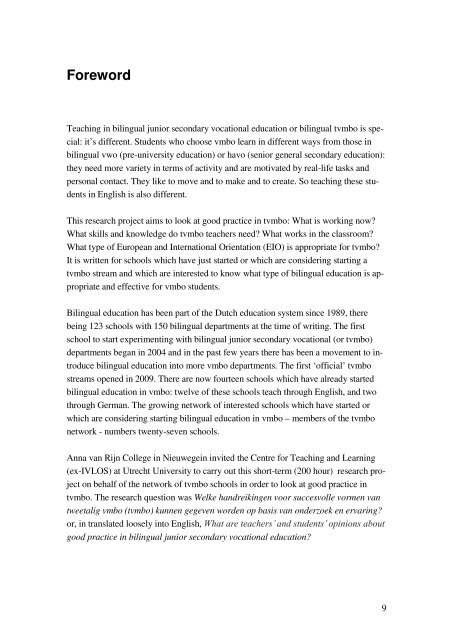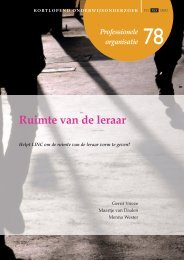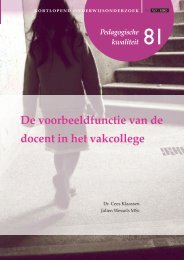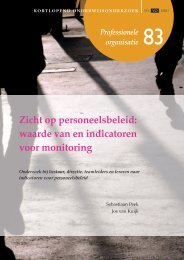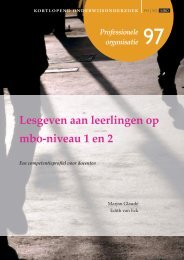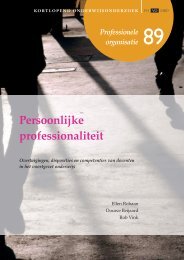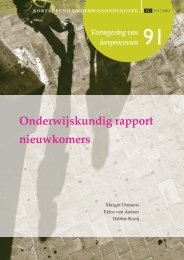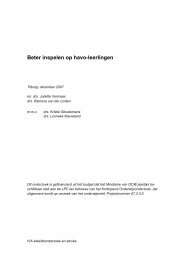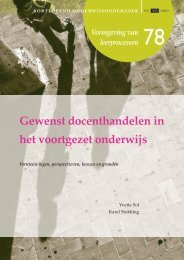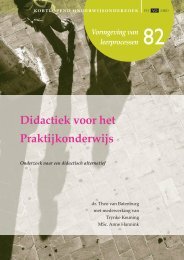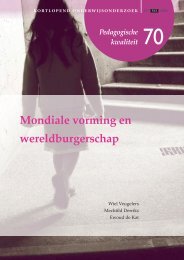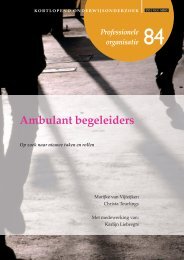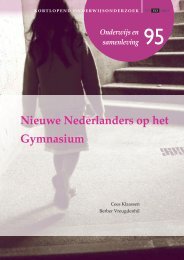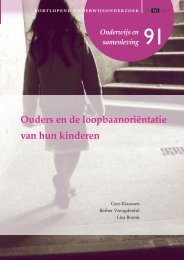Proud to be tvmbo - Kortlopend Onderwijsonderzoek
Proud to be tvmbo - Kortlopend Onderwijsonderzoek
Proud to be tvmbo - Kortlopend Onderwijsonderzoek
You also want an ePaper? Increase the reach of your titles
YUMPU automatically turns print PDFs into web optimized ePapers that Google loves.
Foreword<br />
Teaching in bilingual junior secondary vocational education or bilingual <strong>tvmbo</strong> is special:<br />
it’s different. Students who choose vmbo learn in different ways from those in<br />
bilingual vwo (pre-university education) or havo (senior general secondary education):<br />
they need more variety in terms of activity and are motivated by real-life tasks and<br />
personal contact. They like <strong>to</strong> move and <strong>to</strong> make and <strong>to</strong> create. So teaching these students<br />
in English is also different.<br />
This research project aims <strong>to</strong> look at good practice in <strong>tvmbo</strong>: What is working now?<br />
What skills and knowledge do <strong>tvmbo</strong> teachers need? What works in the classroom?<br />
What type of European and International Orientation (EIO) is appropriate for <strong>tvmbo</strong>?<br />
It is written for schools which have just started or which are considering starting a<br />
<strong>tvmbo</strong> stream and which are interested <strong>to</strong> know what type of bilingual education is appropriate<br />
and effective for vmbo students.<br />
Bilingual education has <strong>be</strong>en part of the Dutch education system since 1989, there<br />
<strong>be</strong>ing 123 schools with 150 bilingual departments at the time of writing. The first<br />
school <strong>to</strong> start experimenting with bilingual junior secondary vocational (or <strong>tvmbo</strong>)<br />
departments <strong>be</strong>gan in 2004 and in the past few years there has <strong>be</strong>en a movement <strong>to</strong> introduce<br />
bilingual education in<strong>to</strong> more vmbo departments. The first ‘official’ <strong>tvmbo</strong><br />
streams opened in 2009. There are now fourteen schools which have already started<br />
bilingual education in vmbo: twelve of these schools teach through English, and two<br />
through German. The growing network of interested schools which have started or<br />
which are considering starting bilingual education in vmbo – mem<strong>be</strong>rs of the <strong>tvmbo</strong><br />
network - num<strong>be</strong>rs twenty-seven schools.<br />
Anna van Rijn College in Nieuwegein invited the Centre for Teaching and Learning<br />
(ex-IVLOS) at Utrecht University <strong>to</strong> carry out this short-term (200 hour) research project<br />
on <strong>be</strong>half of the network of <strong>tvmbo</strong> schools in order <strong>to</strong> look at good practice in<br />
<strong>tvmbo</strong>. The research question was Welke handreikingen voor succesvolle vormen van<br />
tweetalig vmbo (<strong>tvmbo</strong>) kunnen gegeven worden op basis van onderzoek en ervaring?<br />
or, in translated loosely in<strong>to</strong> English, What are teacher’ teachers’ and students’ opinions about<br />
good practice in bilingual junior secondary vocational education?<br />
9


